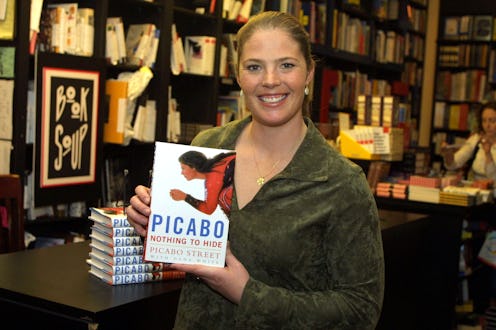Books
Books to Pump You Up for the Olympics
The 2014 Sochi Winter Olympics are beginning this week. The opening ceremony will be broadcast on Friday. Don’t have a TV? Don’t worry! There are plenty of great books out there to get you in the sportin’ spirit.
Figure Skating
This year is the 20th anniversary of figure skating’s biggest scandal: Tonya Harding’s hiring of a hit-man to injure rival Nancy Kerrigan and keep her out of the ’94 games (it didn’t work; Kerrigan won the silver in Lillehammer that year). Check out The Tonya Tapes by Lynda Prouse for more juicy details about the scandal and insight into the bizarre, rigid world of figure skating. When you’re done, pick up Kerrigan’s Nancy Kerrigan: In My Own Words for the other side of the story.
Can’t get enough of the graceful guys and gals on ice? Scott Hamilton’s memoir, Landing It: My Life on and Off the Ice , is your book. His victories against two cancer diagnoses is moving, and fans of his sport will love the anecdotes about his friendships with other skating stars, like Kristi Yamaguchi and Brian Boitano.
Want more inspiration? Look no further than Dorothy Hamill’s A Skating Life. After winning the gold medal in the ’76 Olympics (and starting a hairstyle trend), Hamill was America’s sweetheart; her sunny personality, though, masked a lot of insecurity and a history of depression. Still skating and working on her own happiness, you’ll be as impressed with her tenacity as you are with her skill.
Skiing
Picabo Street’s Picabo: Nothing to Hide will surely get you psyched to watch the ski races in Sochi — '90s kids are as likely to remember her incredible performances in the ’93 Lillehammer Olympics and in the ’98 Nagano games as they are to remember her appearance on Nickelodeon’s GUTS.
Speed Skating
You’ll see Street’s athletic drive and mentality echoed in Apolo Ohno’s autobiography, Zero Regrets: Be Greater Than Yesterday . Ohno’s work is a great introduction to the competitive world of speed skating, and is a wonderful account of his strong bond with the single father who raised him.
General Olympics
More interested in the hoopla surrounding the Olympics than the actual events themselves? Turnaround: Crisis, Leadership, and the Olympic Games by Mitt Romney is a good place to start; before he was a Massachusetts governor and a presidential candidate, he was the guy in charge of organizing the 2002 Salt Lake City Olympics.
If you’re curious about games’ history of tolerance (or, rather, intolerance). read about what happened when an African-American runner won four gold medals in 1936 Berlin in Triumph: The Untold Story of Jesse Owens and Hitler's Olympics by Jeremy Schaap.
Learn more about the complicated politics embedded in the Olympics in Simon Reeve’s One Day in September , which is an exhaustive account of the massacre of 11 Israeli athletes at the 1972 Munich games.
Unfortunately, that wasn’t the only year where there Olympics would be marked with terrorism — Lone Wolf: Eric Rudolph and the Legacy of American Terror by Maryanne Vollers focuses on the 1996 bombing in Atlanta.
For a more uplifting tale, try The John Carlos Story: The Sports Moment That Changed the World by David Zirin and John Carlos. Carlos and his teammate, Tommie Smith, both African-American, raised the black power salute on their 1968 track podium in Mexico City. The salute was done as protest against the inclusion of South Africa (then under apartheid) and Rhodesia (which supposedly had segregated training facilities) in the games. Peter Norman, a white Australian also on the podium, wore an Olympic Project for Human Rights badge on his arm in solidarity. Carlos and Smith were at first criticized in America, but went on to lead impressive athletic careers. Norman, too, was criticized by his home country to such an extent that the Australian parliament passed an official apology, 44 years after the games (and six years after his death). The International Olympic Committee suspended Carlos and Smith from the American team, but today the act (and the famous photo of it) is known as an iconic symbol of bravery and protest.
Whether you’re reading about them, watching them, or even traveling abroad to see them for yourself (dress warmly!), the Olympics are a great exercise in people coming together over sports and a peek into the determinism and strength that make athletes so inspiring.
